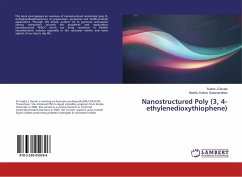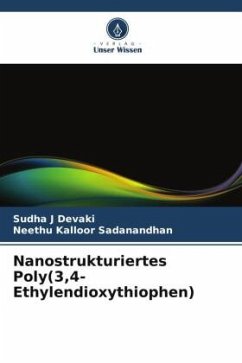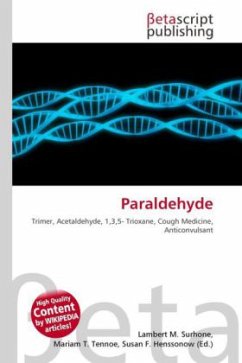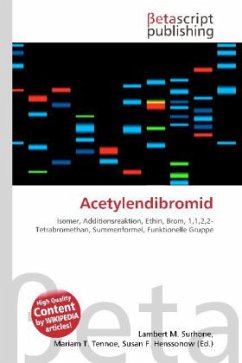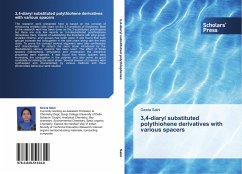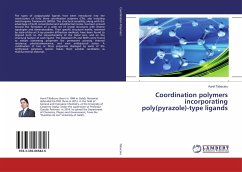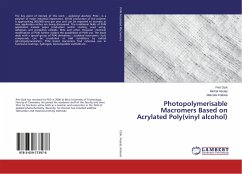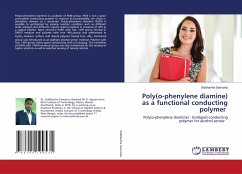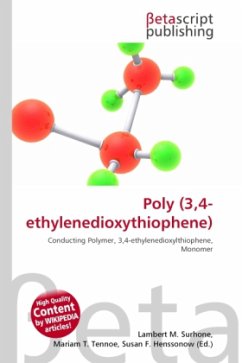
Poly (3,4-ethylenedioxythiophene)
Versandkostenfrei!
Versandfertig in 6-10 Tagen
23,99 €
inkl. MwSt.

PAYBACK Punkte
12 °P sammeln!
High Quality Content by WIKIPEDIA articles! Poly (3,4-ethylenedioxythiophene) or PEDOT (or sometimes PEDT) is a conducting polymer based on 3,4-ethylenedioxylthiophene or EDOT monomer. Advantages of this polymer are optical transparency in its conducting state, high stability and moderate band gap and low redox potential. A large disadvantage is poor solubility which is partly circumvented in the PEDOT:PSS composite, and the PEDOT-TMA material. (Note: Pedot is a transparent conductor. These conductors are used for LCDs and solar cells, among others.) In the field of electroanalysis, conductive...
High Quality Content by WIKIPEDIA articles! Poly (3,4-ethylenedioxythiophene) or PEDOT (or sometimes PEDT) is a conducting polymer based on 3,4-ethylenedioxylthiophene or EDOT monomer. Advantages of this polymer are optical transparency in its conducting state, high stability and moderate band gap and low redox potential. A large disadvantage is poor solubility which is partly circumvented in the PEDOT:PSS composite, and the PEDOT-TMA material. (Note: Pedot is a transparent conductor. These conductors are used for LCDs and solar cells, among others.) In the field of electroanalysis, conductive polymers are widely employed as coatings conferring the electrode systems antifouling properties and possibly activating electrocatalytic redox processes. Among different conducting polymers, PEDOT has emerged in recent years, thanks to characteristics previously reported. In addition, PEDOT coatings possess high stability over different charge and discharge cycles and can be electrogenerated directly on a conductive support (Pt, Au, glassy carbon, indium tin oxide, ) in organic solvents or in aqueous solution.



